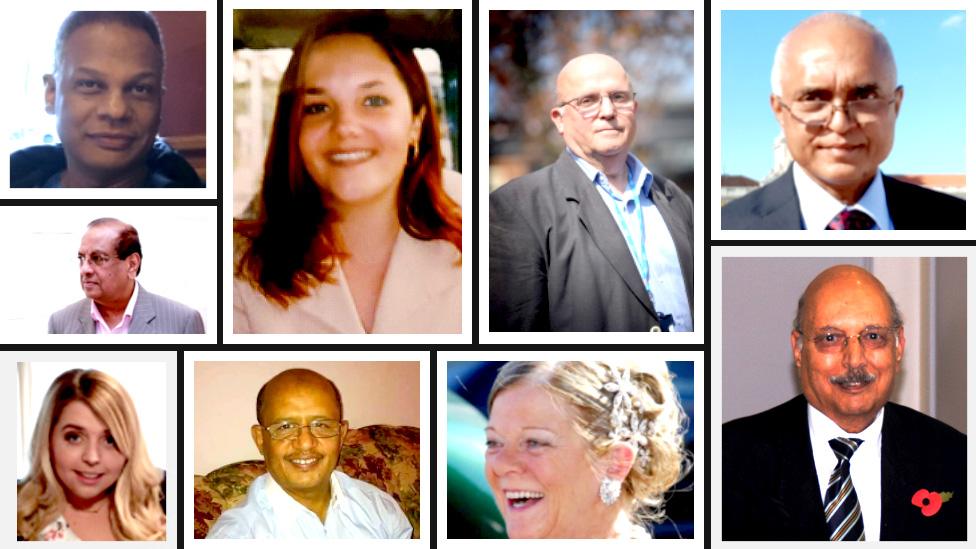Coronavirus: NHS staff 'need similar support to soldiers'
- Published
Medics face similar challenges to soldiers in war zones, Help for Heroes says
Front-line medics need support similar to that received by soldiers, an armed forces charity has said.
Help for Heroes said NHS staff dealing with the coronavirus pandemic had faced mental challenges comparable to service personnel.
These include challenging environments, putting themselves at risk and, in some cases, losing colleagues.
More than 100 NHS and care staff have died after being infected with the virus.
"I think when you're in the thick of it, you just turn up and you get the work done. You can't process it too much," said Dr Ami Jones, a critical care consultant for Aneurin Bevan health board.
Dr Jones also works for the Emergency Medical Retrieval and Transfer Service (EMRTS) with Wales Air Ambulance.
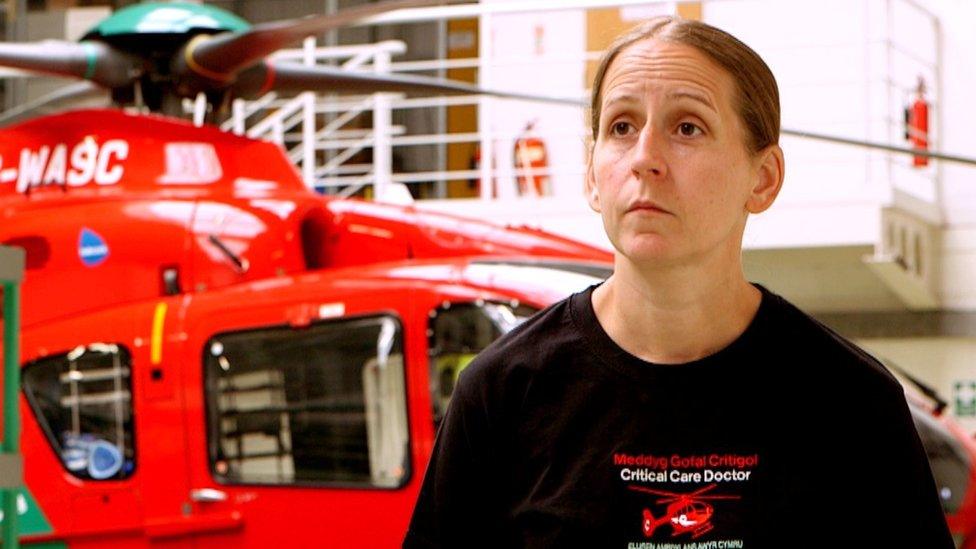
Dr Ami Jones is a critical care consultant for Aneurin Bevan Health Board
She said the "most distressing" part was not being able to talk to relatives face to face and having to break bad news over the phone.
"I'd never thought that would be the worst bit, but it you know it really, really was," she said.
"I think until you experience it, you're never quite sure what it is that's going to kind of push the button and kind of break somebody and upset them."
Dr Jones is also an Army reservist and has served two tours of Afghanistan, based in the medical emergency response teams in Camp Bastion, where she would fly by helicopter to treat injured soldiers on the front line.
She said the intensive therapy unit (ITU) at the hospital where she works reached about "two-and-a-half, three times their usual capacity" and felt like a war zone at times.
"It did all feel a little bit fraught at times. We had lots and lots of sick people to deal with," she said.
"You felt like that patient in front of you could be you.
"A lot of these patients were young, fit patients. Certainly with the military, they are young, fit patients that are wearing your uniform, so I think that vulnerability is definitely a crossover."
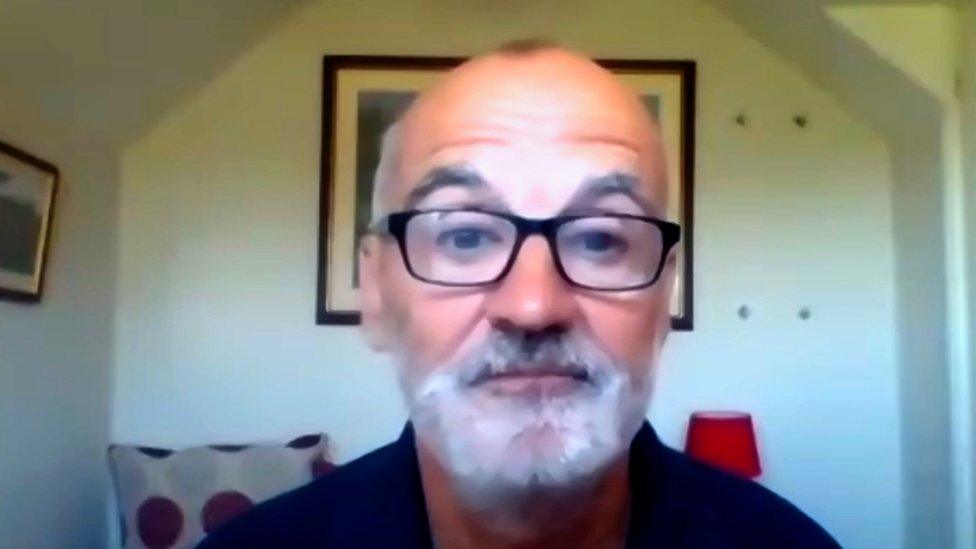
Tim Penney, of Help for Heroes, says early intervention is key to tackling traumatic experiences
A Help for Heroes' Field Guide to Self Care, external was originally created for those who had experienced traumatic events or been affected by working in high-intensity situations in the armed forces.
However, due to the coronavirus pandemic, they chose to make the resource available to support health workers.
Tim Penney, the charity's veterans clinical liaison nurse, said early intervention was "very much the key" when it comes to mental health after a traumatic experience.
"We could see that the struggles that the key workers have in the NHS and on the care home side are very similar to those frustrations and huge difficulties many of our veterans have had to cope with," he said.
"We thought passing these skills and knowledge on would be hugely beneficial.
"I don't think that people on the front line in the NHS will have been expecting to work in an environment where they could see some of their colleagues both very seriously ill and perhaps in some cases passing away, no-one would have expected that.
"It's obviously an incredible emotive time for people on the front line out there."
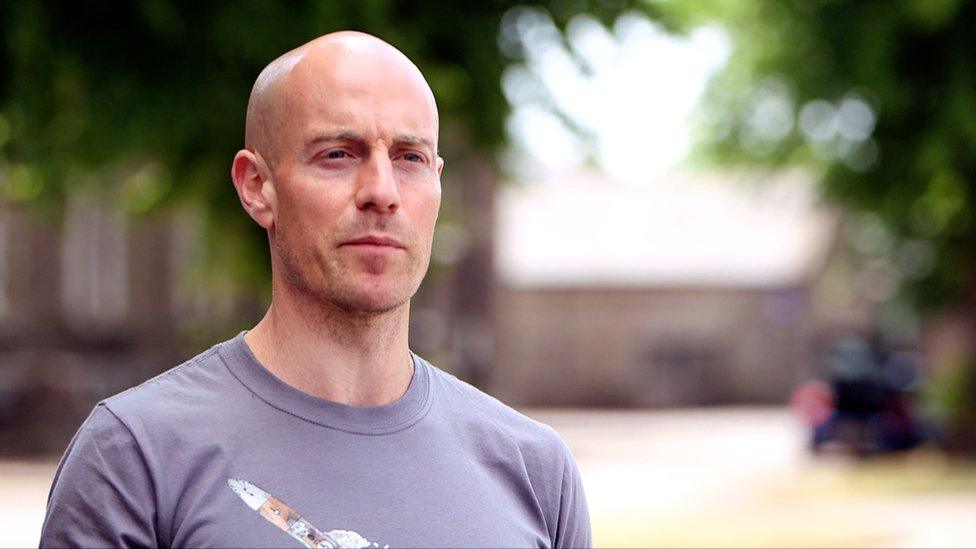
Matthew Gravelle has starred in Keeping Faith, Doctor Who and Hinterland
Keeping Faith and Broadchurch actor Matthew Gravelle voiced part of the resource in both English and Welsh.
"I can't personally provide any physical help, as much as I'd like to, so being able to just provide a voice, and to help to guide people through something that can hopefully achieve relaxation, from a place of stress or anxiety, at least I feel like I'm providing something in some way."
The Army has also played an active role in supporting the NHS during the crisis.
Maj Dominic Pascoe of the 3rd Battalion of the Royal Welsh, is the Shenkin Company's commanding officer.
Since March, the regiment has been driving and decontaminating ambulances, unloading PPE air-delivered into Cardiff Airport and assisting with management of test sites.
"This regiment is just over 300 years old and we've never ever in our history been able to serve our communities. It's an honour to be able to do that," he said.
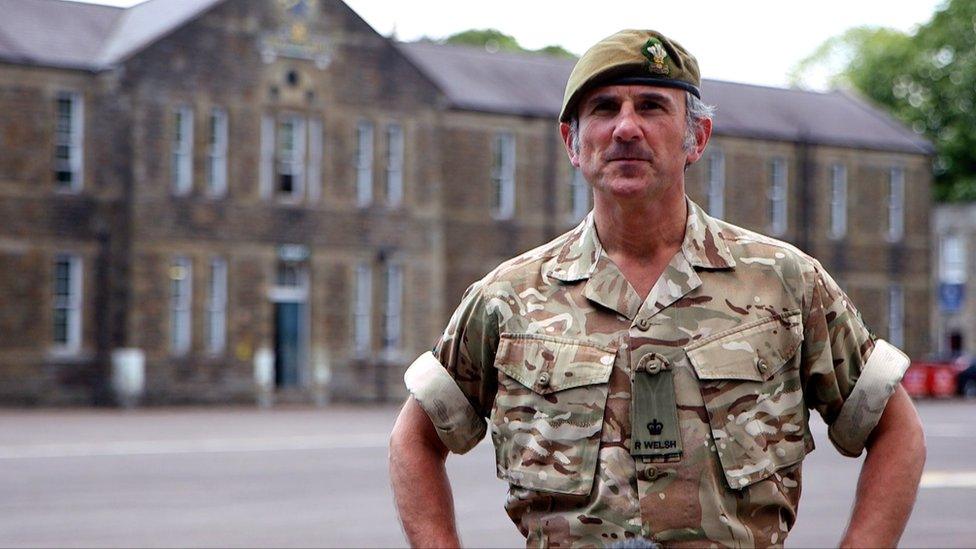
Maj Dominic Pascoe said medical staff he had been working with were "inspirational"
"For a front-line soldier, it's the experiences of trauma and probably seeing things that you really shouldn't have to see in your in your lifetime.
"For front-line medics, it's exactly the same thing. It still has the same impact and effect on you, whether you're a soldier, a nurse or a doctor.
"The one difference is though is for a soldier, at the end of your tour, you can go home, whereas for a nurse that's every day of the week those shifts keep on going, year after year after year."
- Published15 May 2020
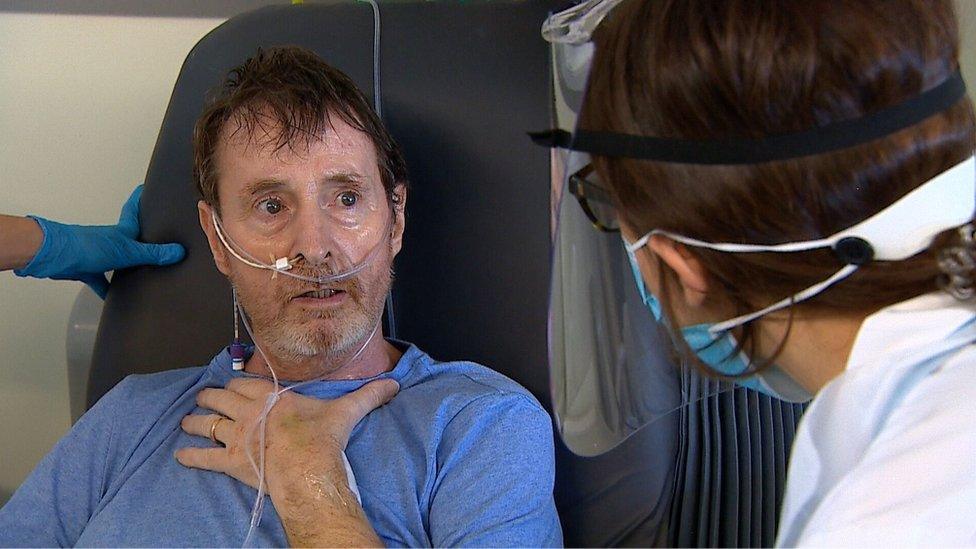
- Published12 May 2020
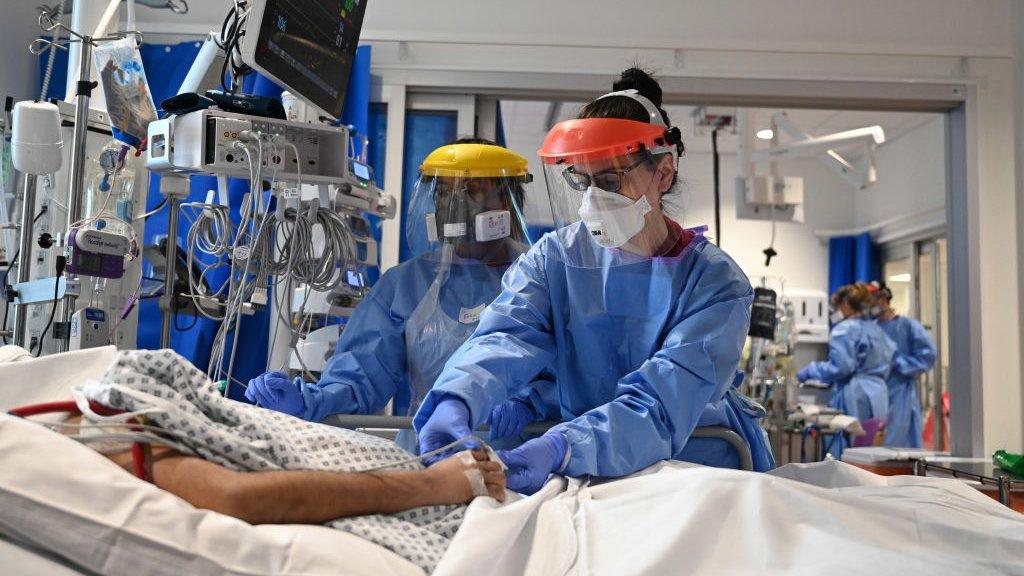
- Published21 May 2020
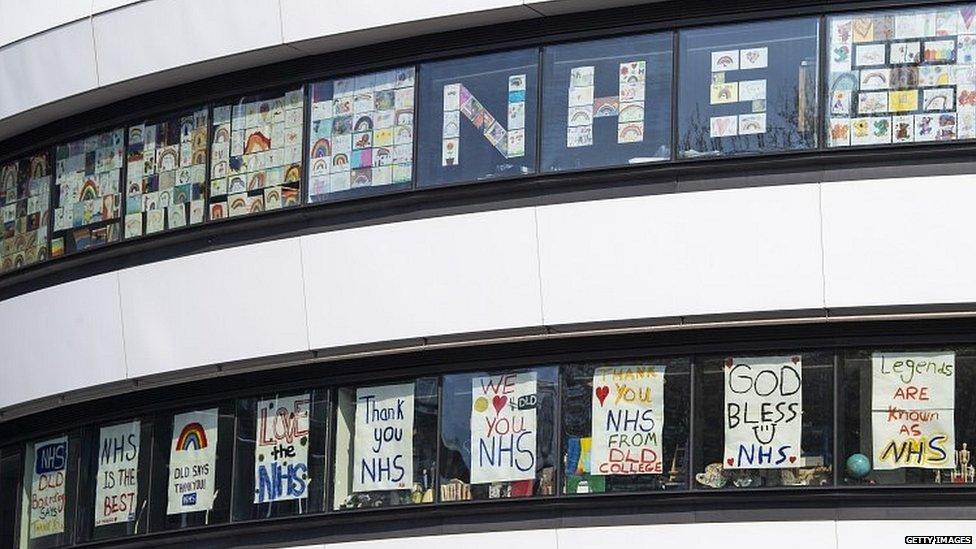
- Published26 May 2020
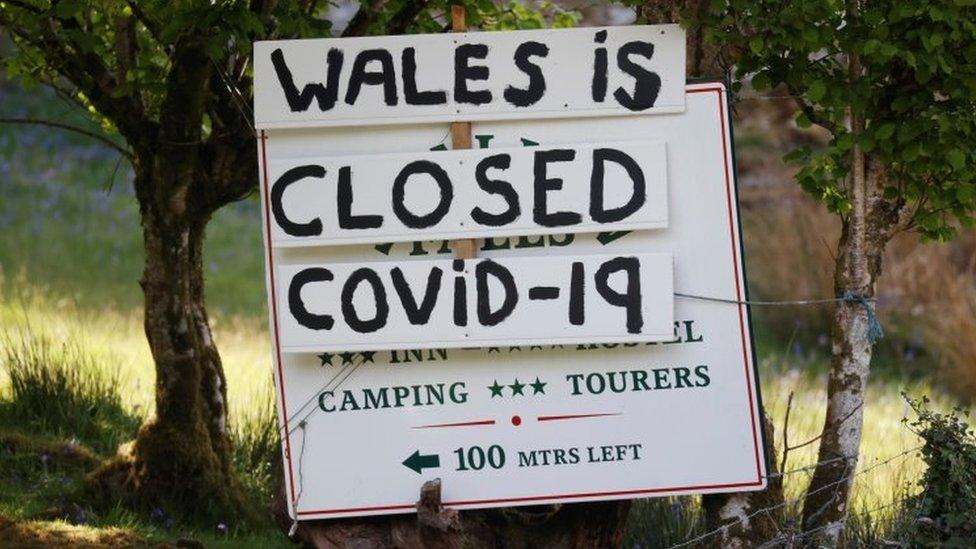
- Published28 April 2020
